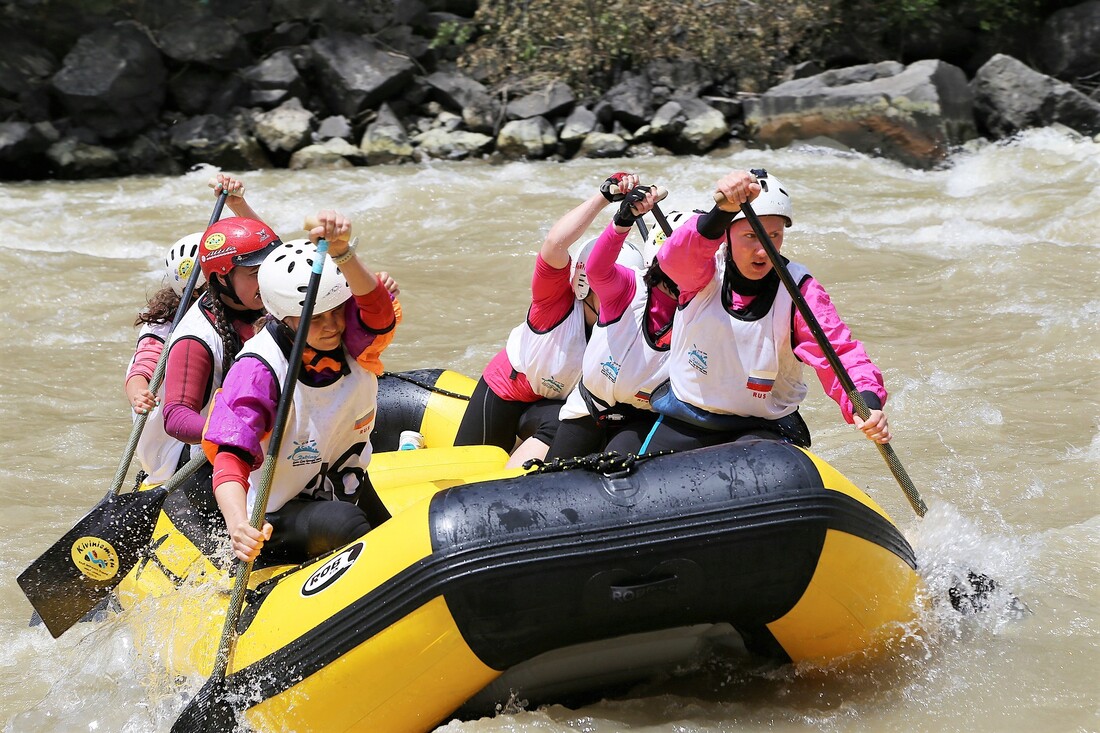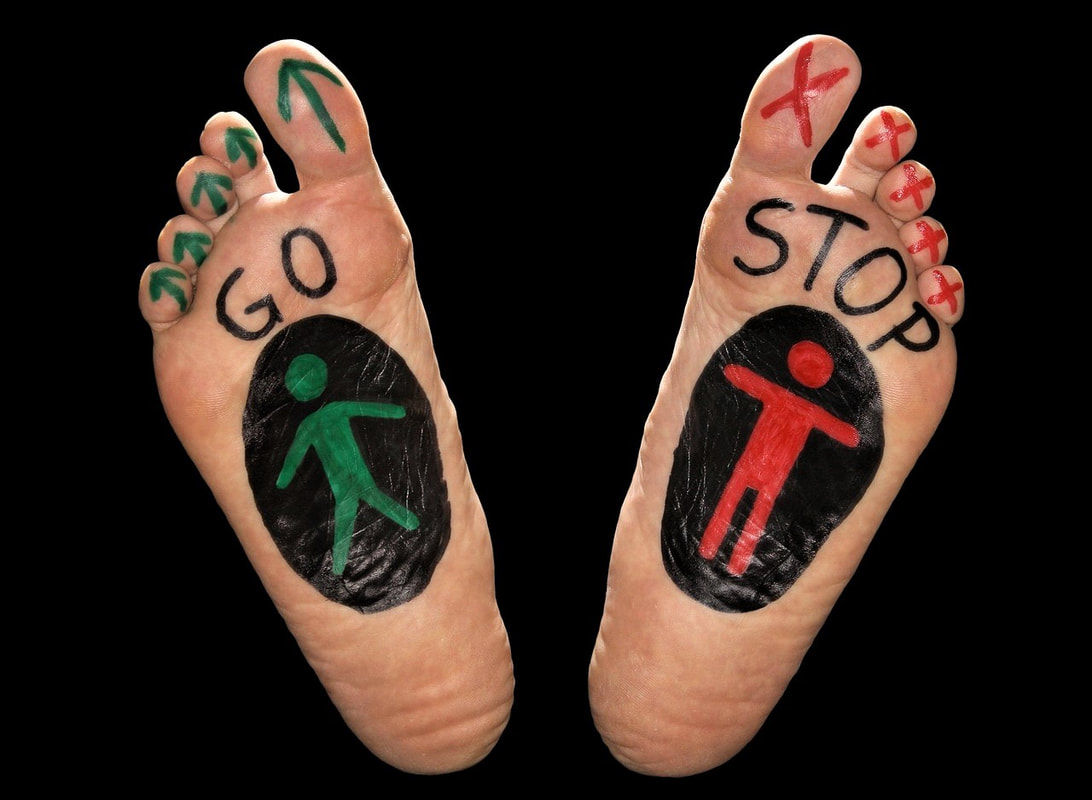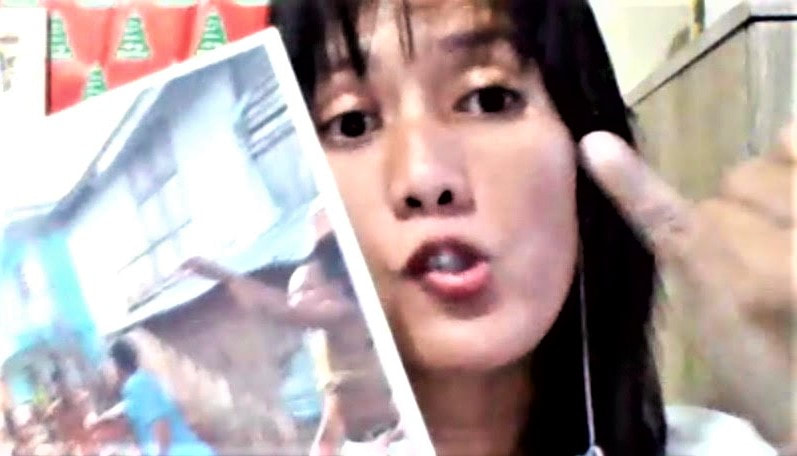|
At a time when geopolitical tensions between NATO-EU and Russia are on the increase and depicted starkly as such in the media, I showed a video of a Russian 'hell march' to an international group and asked them: a. What do you notice; b. How do you feel; c. What does it mean? It opened a deep conversation that emphasised the need for critical reflexivity in interpreting experiences and events. A Chinese participant looked quite disdainful and said it reminded her of similar 'propaganda parades' in her home country, designed to make people feel compliant and positive about the Communist party state. A German participant said it filled her with fear, evoking stories she had heard from elderly family members about horrors under Soviet occupation at the end of the Second World War. A UK participant, perhaps with the spirit of Brexit still reverberating fresh in the background, said she found the enforced uniformity and conformity disturbing. A Filipina participant from an Hispanic cultural background, who had lived under a repressive military dictatorship, said she liked how the soldiers were as-if dancing to a rhythm and doing something constructive that displayed positive talent. I noticed banners in the background depicting 1941, the year in which the Nazis had unleashed a war in the East that resulted in unspeakable terror and devastation. As a passionate anti-Nazi, I saw the march as an assertive symbol: a 'never-again'. We reflected on our different selective perceptions, feelings and interpretations and the profound influence of ourselves-as-filters as we look out onto the world. In a similar vein, at a Gestalt coaching training workshop last week, I posted an image on screen of a tree in wheat field with dark clouds looming overhead. I asked the group what they would notice in 3 imagined scenarios: 1. As a child, you loved to climb trees; 2. You are walking the countryside and have forgotten to bring a raincoat; 3. You and your family have had no food to eat for a week. We noticed that we notice what matters to us in the moment. Different people-groups may notice different things in the same situation, or the same person-group may notice different things in the same situation at different times. We attribute meaning based on our beliefs, values, hopes, fears and expectations. This includes personal and shared-cultural memories, emotions and imaginations. As we move ahead this year, I pray that I-we will do so with eyes wide open. What may appear to us as self-evident, real and true may reveal as much about us as who or what we observe: if we are willing to see it. What can we do to create greater critical reflexivity? How can we address blind spots and hot spots to open up fresh possibilities, address risks – and take a stance that is sound?
14 Comments
‘Question: Why do scuba divers always fall backwards out of the boat? Answer: Because if they fell forwards, they’d still be in the boat.’ (That meme still makes me smile). It takes me back to a recent conversation with an action learning group. We were practising a Gestalt technique of noticing use of metaphors as a person speaks, then inviting playful exploration to see what fresh insights and ideas might emerge. It has some parallels with James Lawley & Penny Tompkins’ symbolic modelling (Metaphors in Mind, 2000). Whilst thinking through an issue she was struggling with at work, one participant explained that she felt worried about ‘rocking the boat’. Picking up on the metaphor and stretching it towards a greater polarity, a peer asked, ‘How would it be if you were to sink the boat?’ Then, after she had had time to reflect and respond, another posed, ‘In that situation, what would it take to float your boat?’ In a Gestalt coaching context, I might invite the same person to enact the different metaphorical possibilities physically. We could use objects such as tables and chairs in the room to represent the boat and other significant people or situational factors, then experiment with rocking, sinking, floating or navigating through them. Doing it is very different to imagining it or talking about it. What experience do you have of working with metaphor? How do you do it? ‘I like to deal with things in the order in which they are going to kill me.' (Rita Cooper) In response to Rita’s satirical note (above), we could imagine prioritising in simple form by posing a question such as: ‘Is it going to kill me? a. Yes. b. No. c. Maybe.’ Sorted. :) A different question, orientated around vision and values, could be, ‘In 5 years' time, what will make me feel proud of the decision I take now?’ It brings existential-spiritual ethics and wisdom sharply into view. A recurring theme in leadership, coaching and organisation development (OD) is how to prioritise, especially when faced with an array of options and each with its own implications. The challenge is compounded if a context keeps shifting, or if different stakeholders value and demand different things. It can feel like being caught in a bewildering, exhausting, push-pull, tug of war. Common prioritisation tools include a map of urgency against importance; or value against cost (or risk); or probability (or difficulty, or effort) against impact. The Pareto Principle suggests that 80% of the most significant outcomes arise from 20% of actions or resource investments. A critical path analysis can help to determine what should take precedence at different phases of a timeline. Useful as they are, a limitation of these methods is that they are, essentially, tactical management techniques that aim to enable us to navigate from point A to point B. A transformational approach calls us to reflect broadly and deeply. A question of what B may represent and how I may choose to get there from point A draws vision, values, identity, meaning and purpose into the frame. What criteria do you use when choosing priorities? How do you decide who or what takes first place? Coaching is listening for a voice. More accurately, at deeper levels, for 4 voices. Firstly, the voice of the client: his or her concerns, aspirations, thoughts and feelings. This is the traditional focus of coaching and counselling, seeking to hear the client, to listen, pay attention, help the client to hear his or her own voice more clearly. Secondly, the voice of the client’s environment: his or her background, experience and context. It’s what Gestalt calls the field. The introjects, assumptions, cultural norms and systemic constructs that shape and speak implicitly through the client’s outlook and experience. The hidden voices behind the client’s voice. Thirdly, the voice of God: revealing, guiding, challenging and consoling. The clear, confusing, mysterious voice of God who whispers in sound, in silence, through the visible and invisible. The God who is the Word, who speaks the eternal Divine language behind human language, calling us inwards, outwards, towards and beyond. And finally my own voice: my learning, intuition, experience and discernment. It’s about listening for a resonance, a dissonance, a sense of harmony with the client, with his or her world, with God. It’s an art, a science, an energetic struggle, a dance. It’s a precious and challenging call, but the potential for transformation is significant. ‘Hindsight no longer leads to foresight after a shift in context.’ (David Snowden & Mary Boone) ‘What does this new situation call for?’ is a vastly different question to, ‘What did I do last time that worked?’ I learned this the hard way. In my younger days, I led a youth and community work project in the North of England that was, by most accounts, a great success. I subsequently moved to the South of England where, instinctively, I replicated that same approach. This latter initiative was, sadly, an unmitigated failure – yet a very important way to discover that context is critical. Increasing dynamic complexity in the world means that, in many situations we now face, the past is no longer a reliable predictor of the future or sound basis for action. In contrast to earlier views that change happens sequentially and linearly with one state of play building on another, Michael Lewis argues that, ‘change may be the result of complex emerging connections that are often random.’ Significant influences can, and often do, emerge unexpectedly at any time and from left field. There are parallels at an individual level. Karen Franklin comments that for the common maxim ‘the best predictor of future behaviour is past behaviour’ to be true, ‘the anticipated situation must be essentially the same as the past situation’. Yet, when is it? Is any context really that fixed? Eleanor O’Leary reflects astutely: ‘Everything that we have learned, everything that we have experienced is carried in the present moment.’ The past is known and feels familiar. We can get stuck there. Whether dealing at macro-strategic-systemic levels or with the people, relationships and situations in front of us, learning to critique our presuppositions-from-experience has never been more crucial. A simple aide-memoire? Post an image of traffic lights on your cell phone, laptop or desk: red light - pause; amber light - reflect; green light - act. Alongside amber, ask: ‘What am I assuming?’ (This can be a difficult question to answer, owing to deep personal-cultural blind spots or defensive routines)*. Yet, to discover a way to see the past, present and future through fresh eyes is absolutely key. What techniques have you found that help you and others do this well? (*Interested to develop your own critical reflexivity and critical reflective practice? Get in touch!) ‘Good endings make sense, evoke emotions like contentment, anger, sadness, or curiosity, shift the person’s perspective or open her mind to new ideas. Good endings bring the person to some kind of destination.’ (Alex J Coyne) Lilin Lim, my sister-in-law, reads the back page of a novel first to decide whether it looks like the story is worth reading. There’s something about a good ending that can make whatever went before it feel worthwhile – the time, effort or, at times, struggle to get there. Think back to your own life and work peak experiences: e.g. birth of a child, achievement of a desired promotion or qualification, overcoming of a disability or fulfilment of a dream that, perhaps, felt hard at the time yet worked out well in the end. Conversely, think back to seminars, workshops or meetings you have taken part in that didn’t result in anything remotely meaningful to justify the investment. Academic Peter Cotterell commented satirically that, similarly, many lectures and articles can feel like, ‘a plane in the sky that takes off well yet finds itself circling in the clouds and can’t find a way to land.’ Stephen Covey said, ‘Begin with the end in mind’, a perspective that resonates well with the biblical idea of an end-revelation to draw us forward. This same principle applies in coaching and action learning. If we open a conversation with questions such as, ‘In relation to X, where do you want to be an hour from now?’ or ‘Of all the things we could spend the next hour doing together, what, for you, would make this time well spent?’, it can help ensure an explicit sense of focus and purpose from the outset – and raise into critical awareness Gary Rolfe’s movement towards an ending: the ‘Now what?’, before considering the ‘What?’ and the ‘So what?’ David Clutterbuck suggests ending this type of conversation with an invitation to the client to reflect and summarise for him- or herself, using a simple 4xI framework: ‘What are the Issues we’ve talked about; what are the Insights that you’ve had; what are the Ideas that we’ve generated; what are your Intentions now?’ It’s a consolidating technique that can enable a sense of learning and closure for the client and a transition into action. It helps to avoid the risk of a session simply...fizzling...out. Rosie Nice poses useful grounding questions: ‘Are there any other dimensions you would like to explore before moving into actions? Would it be helpful if we were to consider some questions to help you think through what actions you might take? What’s the main thing you are taking away, having had opportunity to think this through?’ Sue Murkin ends with: ‘Given what you know now, how will this impact on your work? How could you see yourself using this? What will you do now?’ How do you avoid perpetual drift or an abrupt crash landing? How do you create a good ending? ‘What is it your plan to do with your one wild and precious life?’ (Mary Oliver) Íñigo López de Loyola suggests a fast-forward in your imagination to the end of your life, then to ask yourself seriously from that standpoint what you will want your life story to have been. Having decided it, rewind back to the present and ensure that your vision of the future guides your priorities, decisions and actions now. This idea resonates with Stephen Covey’s 'begin with the end in mind', and Simon Sinek’s 'start with why'. According to John Kotter, if our vision is convincing enough to the mind and compelling enough to the heart, we are most likely to see it through. Without such a vision, we may drift meaninglessly. I believe the best visions are rooted deeply in ethics and values and, in essence, a fulfilment of them. I have been incredibly inspired by Jasmin’s vision, a poor follower of Jesus who lives among the poor in the Philippines: ‘Whatever status or power you have, use it for those who are vulnerable; whatever money you have, use it for the poor; whatever strength you have, use it for the weak; whatever hope you have, use it to bring hope to those who live without hope. Speak up for justice and truth – whatever the cost. Pray.’ The challenge is not just in the aspiration itself but in her sheer determination to live it out in practice. She scares me. My own vision is shaped by a trust in God too. I slip and slide on route and have sustained and caused too many scars to prove it, yet Jesus still influences profoundly the purpose, focus, boundaries and possibilities of my life and my work. As I get older, I'm experiencing a subtle and gradual shift from what I want to do in the future, to what legacy I want to leave behind me. It doesn’t feel like a mid-life crisis. Echoing Richard Rohr, it feels more like a falling upward than a falling apart. I still want to make a significant, positive and tangible difference in the lives of the poor and most vulnerable people in the world. I – you – we can be hope. What’s your vision for 2022 and beyond? How will it influence your decisions now? |
Nick WrightI'm a psychological coach, trainer and OD consultant. Curious to discover how can I help you? Get in touch! Like what you read? Simply enter your email address below to receive regular blog updates!
|










 RSS Feed
RSS Feed